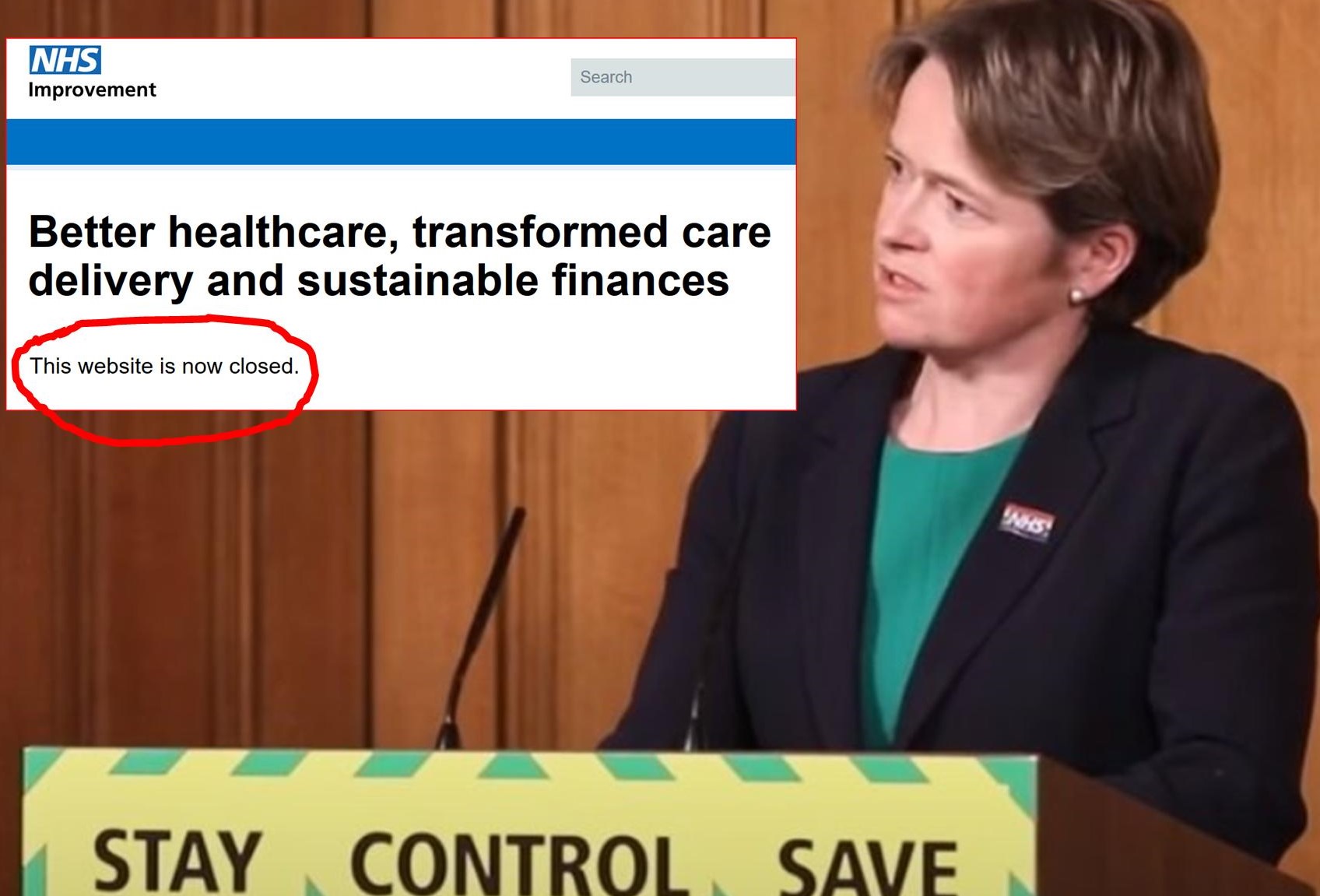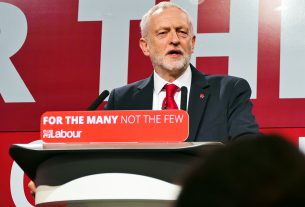The UK has reached a “critical juncture” with the government announcing a three tier alert system to try and defeat the coronavirus.
From the outset of the pandemic the country has been told how vital it is to have an effective and efficient test, track and trace system to halt the spread of the coronavirus. And yet, the most recent data released by Public Health England (PHE) shows the “world beating system” promised by the prime minister is failing at every key level.
Chris Hopson, the chief executive of NHS Providers which represents hospital trusts in England, said it is “worrying” that the performance of NHS Test and Trace in the three key areas of transferring cases to the system, reaching the contacts and turning round tests within 24 hours “are all getting worse when we need them to get better, quickly.”
The failings of the system have been a consistent feature of the UK’s experience of a mishandled pandemic. The result is one of the world’s highest death rates and now the onset of a second wave forcing millions of people into ever tightening local lockdowns that are putting myriad businesses on the brink of bankruptcy – despite the billions upon billions of taxpayers’ money spent to deal with the crisis.
Serco and Sitel’s ‘memorable connections’
Many of those billions have been spent to set up and run the NHS Test and Trace system – an egregiously named organisation, led by Baroness Dido Harding that was set up and is run by two private companies, Serco and Sitel.
Serco is a British based multinational firm that makes 40% of its revenue from UK government contracts. It has also been repeatedly fined for failing on those very same UK government contracts.
Sitel, a US business headquartered in Miami, Florida state they are a company who “connect brands with customers”. Their website adds: “With an unrivaled blend of empowered people and powerful technology, we deliver an end-to-end customer experience making memorable connections.”
What kind of “memorable connection” between “customers” and the NHS do they wish to make given those they have made so far? The kind of “connections” seeing people – taxpayers paying for the service – unable to get tests, not contacted by contact-tracers and then having to wait too long for results when they do finally manage to actually get a test?
Serco and Sitel are the companies running the NHS Test and Track but they are not the ones publicly associated with its failings.
Instead all the “memorable connections” – many of which are overwhelmingly negative – are being made with the NHS and not Serco or Sitel by virtue of the three letters scandalously used in the name of the track and trace system.
Tarnishing the NHS, setting it up for privatisation
It is blatant false advertising and branding at the very least, while some cynics go even further and suggest the pandemic is proving to be the perfect opportunity to finally break up and privatise the NHS by undermining it at every opportunity.
Every scathing report and negative interaction with the test and trace service is associated with the NHS, thereby implicitly damaging its reputation. Nudge theory is a relatively recent conceptualising of an ancient technique to persuade and shift opinion over time – and it is clearly being employed right now to tarnish further the NHS.
These are the seeds being planted by the “memorable connections” made by Serco and Sitel – two international private companies set to further enrich their shareholders and deplete the NHS through the creeping privatisation of its services.
‘Website is now closed’
And it is being all overseen by Baroness Dido Harding. She was appointed head of NHS Improvement by Theresa May in 2017 – just after quitting as boss of TalkTalk following a scandal that almost collapsed the company.
Most people’s careers would never survive being responsible for such a calamitous event. But most people do not have the same connections to politicians and wealthy businessmen as Baroness Dido Harding.
Most people would have to step down if not completely away and would never again be entrusted to lead a business if their performance at the top was as base as Harding’s at Talktalk.
But not the Baroness. Because, as we all know, Harding was in fact promoted-up and put in charge of NHS Improvement and its many billions strong budget despite having no experience working in health.
Amazingly, NHS Improvement’s “website is now closed” as, it is explained: “we are building a new single website for NHS England and NHS Improvement.”
Of course they are, because what better time could there be than in the middle of a pandemic to spend crucial and finite time, energy and resources on harmonising two websites? Especially when the boss of NHS Improvement is the same boss in charge of delivering a “world beating test and trace system” that is in fact, as evidenced, completely failing at every key aspect it has been financed to deliver on? What does this reveal about priorities?
The same applies to PHE where the same questions were asked following the government’s announcement – in the middle of a pandemic – that the organisation at the forefront of the country’s fight against the virus, will be scrapped and replaced.
And will be led by Baroness Harding who has been appointed “interim” chief of the new organisation, the National Institute for Health Protection (NIHP).
Her increasing number of key roles and various positions means Harding will be central to Operation Moonshot – the government’s eye-watering £100 billion project to test 10 million people for Covid-19 every day.
“She’s simply the best person who could be doing this job,” said her close friend and health secretary Matt Hancock when he was asked about Harding’s appointment to lead NHIP in August.
The Dido Problem and bags of gold
Baroness Harding said “don’t believe everything you read on Wikipedia” when asked about ‘herself’ at a conference discussing what ‘Ruthless’ means. She prefers to consider it ‘tough’, as tough as an ox’s hide perhaps, and the granddaughter of a Desert Rat’s rise to power is an astonishing tale with much foreboding for the nation’s cherished NHS.
As told by a Times Radio podcast – which features a dizzying array of suggested links at things politicians don’t like being linked with – it’s a complicated story with more layers than a field full of onions and hard to tell in a limited space such as this.
But then that, literally, is the Dido Problem.
In Greek mythology – if you can believe anything you read on Wikipedia – Queen Dido founded the city of Carthage after fleeing her brother’s tyranny in Tyre. Virgil describes her as a clever and enterprising woman whose wisdom and leadership made the new city rich.
Queen Dido had fled from her brother who had killed her rich husband – who was also her uncle – but before sailing off into exile, she hurled her husband’s bags of gold into the sea in tribute to her departed spouse (and to dissuade her brother from chasing her).
Except, it turns out, the bags were filled with sand.
On arriving to where nowadays is Tunisia – with her husband’s bags of gold – Dido asked the king for a piece of land – a piece no bigger than that which could be bound by an ox’s hide.
Ingeniously Dido cut the animal’s skin into thin strips and managed to encircle a hill on which Catharge was built.
Mathematicians tell the tale to explain the Dido Problem – “probably the oldest problem in the Calculus of Variations” which relates to enclosing the ‘maximum possible’ inside a fixed boundary.
It doesn’t take much of an imaginative leap to see Baroness Dido Harding enclosing ‘the maximum possible’ under her various leads, all the while laying down more thin strips of dead animal skin as the boundary of her responsibilities grows.
It’s a leap more credible still by remembering the Baroness’ husband is Tory MP John Penrose who recently joined the board of 1828 – a rightwing think tank who call for the abolition of the NHS in favour of a US style insurance system. Liz Truss – secretary of State for International Trade and President of the Board of Trade – is also a member.
It is also worth noting 1828 published a paper – before Penrose joined – calling for PHE to scrapped and replaced.
And it has been. In the middle of pandemic.
During which bags of gold continue to be hurled while the health service is set on a course to reach a state of carnage.




